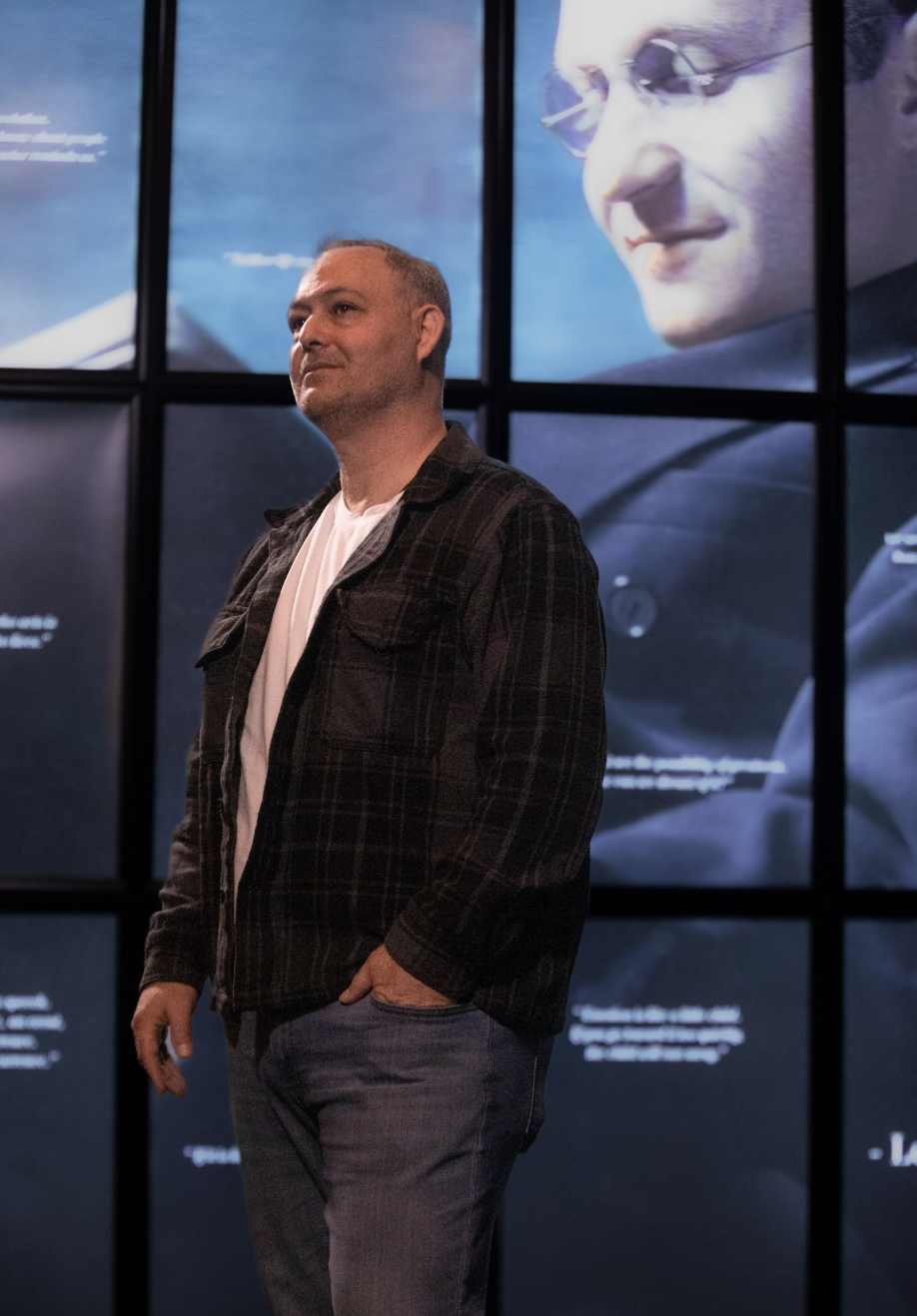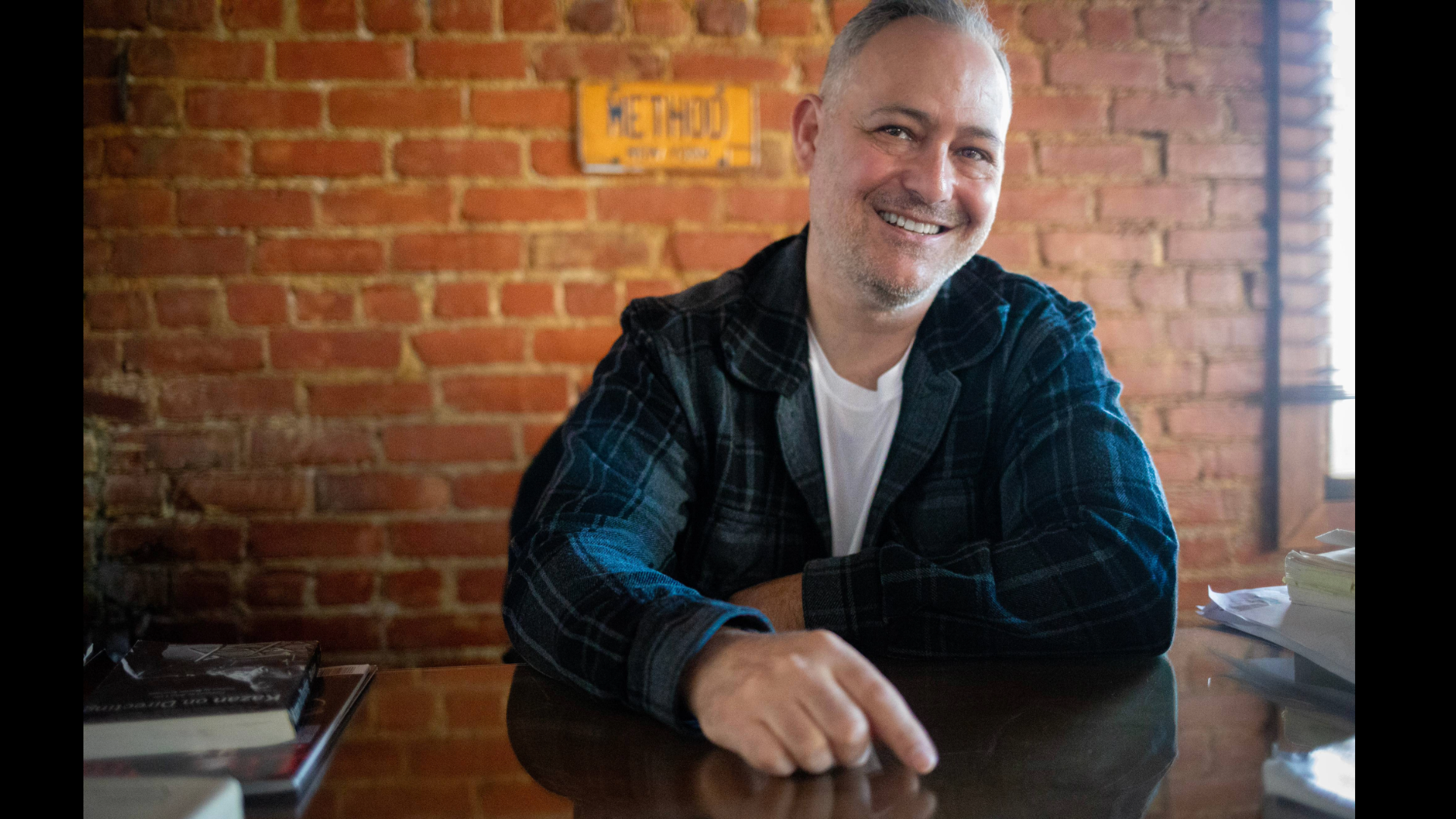
David Lee Strasberg, artistic director of The Lee Strasberg Theatre & Film Institute in West Hollywood, carries the weight of a storied legacy while forging his own path in a city known for creativity and cultural innovation.
As the son of Lee Strasberg, the legendary acting teacher who introduced “the method” to Hollywood, David has become both a custodian and a reinterpreter of a tradition that has shaped countless actors and films, including The Godfather II, which celebrates its 50th anniversary this year.
Located on Santa Monica Boulevard and Hayworth Ave., the iconic Institute— a fixture of the West Hollywood landscape — has quietly influenced the global arts scene for decades. While many pass by its unassuming exterior daily, the school is constantly abuzz with the excitement of the next generation of actors, filmmakers, writers and musicians hard at work on their craft. David Strasberg continues to nurture this pipeline of talent .
Lee Strasberg’s own film debut in 1974’s The Godfather Part II remains a touchstone for the acting world. His portrayal of Hyman Roth earned him an Academy Award nomination and cemented his place in cinematic history. For David, this legacy is both an inspiration and a call to action. As he oversees the Institute’s operations, he is acutely aware of the need to define the method and evangelize it for a modern audience.
“We’re here to ignite your creative impulses,” David said. “Yours. Not what society has told you your impulses should be. And I think that’s a huge—that’s the distinction where it becomes really unique. That’s what the method is about. Everything else is a means to an end.”
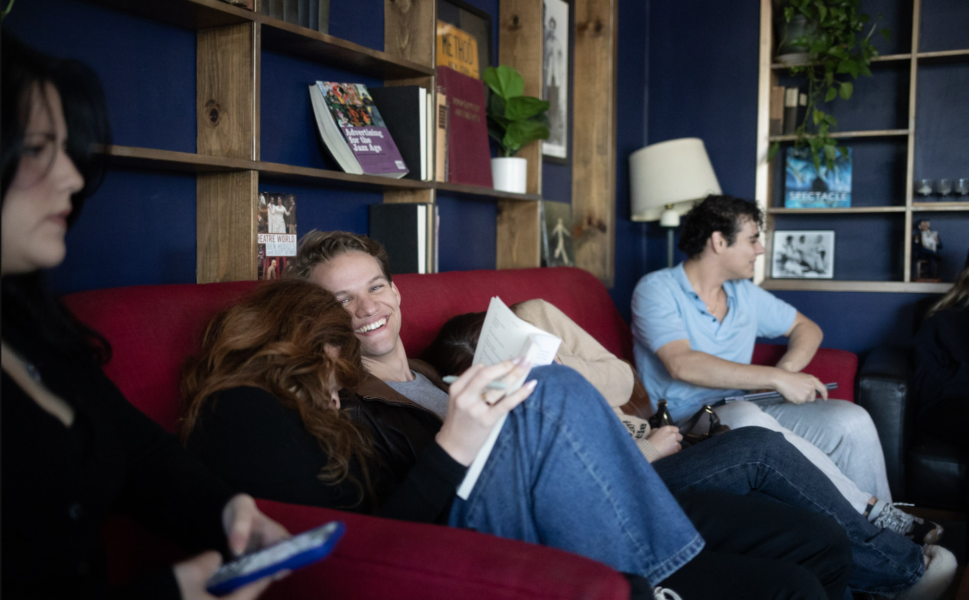
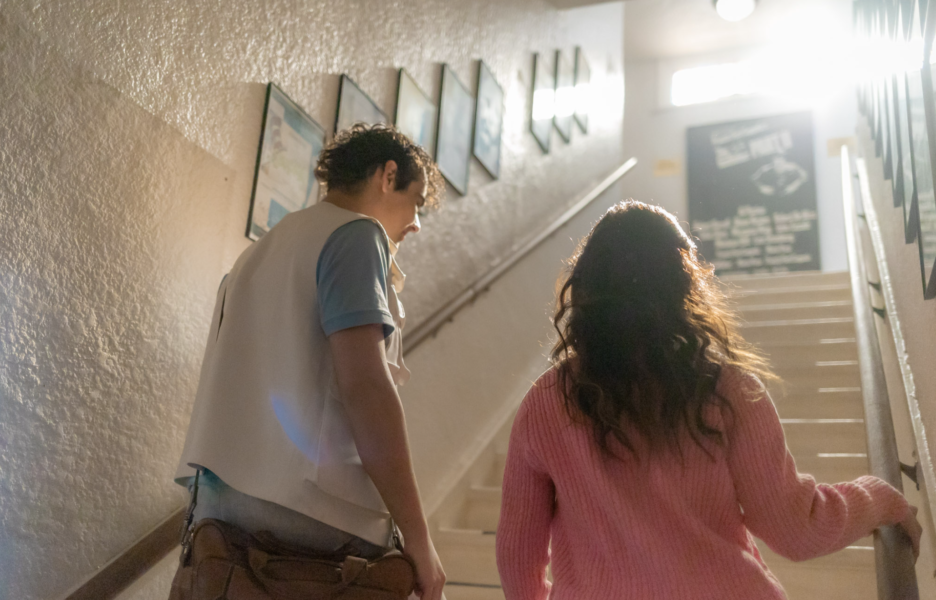
“The method” originated as a training and performance technique for actors that emphasized deep psychological connection, emotional authenticity and personal identification with the character portrayed. Originating from the teachings of Konstantin Stanislavski and further developed in the United States by practitioners like Lee Strasberg, Stella Adler and Sanford Meisner, method acting prioritizes the actor’s lived experience and emotional truth as tools for creating a compelling performance.
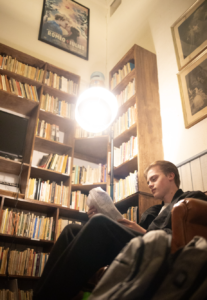
Method acting is often misunderstood, with many wrongly assuming it requires actors to stay in character constantly. The well-publicized antics of a handful of high-profile actors preparing for their roles have fueled such misconceptions, but method acting is meant to improve the craft through empathy, not physical extremes or bizarre behavior.
Apart from battling misinformation about the method, David has taken it a step further, beyond the walls of the theater or cinema.
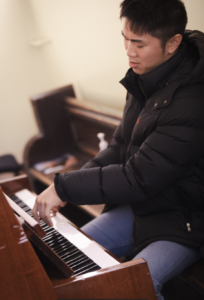
His approach to teaching reflects his belief in integration—bringing together mind, body, and emotion to create authentic performances. This philosophy has led him to explore how the method can apply beyond acting. into various fields, emphasizing its foundation in universal truths. He likens it to understanding gravity—once a fundamental principle is recognized, it can be applied creatively across disciplines. He says method acting is not about personal ideas but about observing and revealing truths about human nature, with great acting serving as a revelatory reminder of forgotten realities.
The method applies in a wide variety of non-entertainment disciplines, such as in executive coaching and even martial arts, offering powerful tools for influence and connection across multiple domains. He argued that parallels to the method can be found in physics, philosophy, politics, and other sciences, pointing to the shared principles of belief and conviction.
HOME IN WEHO
The institute’s roots in West Hollywood run deep.
The elder Strasberg established the L.A. branch of his school in 1969 on the intersection of Hollywood and Highland, close to his star on the Hollywood Walk of Fame. In 1972, the institute relocated to its current address at 7936 Santa Monica Boulevard in West Hollywood. This two-story building, a former bank, encompasses 19,456 square feet and houses two workshop theaters — a 30-seat black box and a 99-seat main stage — as well as a theater lounge and an upgraded soundstage for on-camera classes. The second floor features multiple studio spaces, including acting and dance studios, and a screening room.
The institute offers a rigorous education that bridges stage and screen acting. Notably, it provides the only degree program specifically in Lee Strasberg’s work—a two-year Associate of Occupational Studies degree. Additionally, part-time and shorter full-time programs are available, along with invite-only lab classes for alumni, advanced students, and working actors.
In November 2024, the institute hosted the 8th Annual Lee Strasberg Film Festival at its West Hollywood campus. Previously held in New York City, the festival’s relocation to Los Angeles marked a significant expansion, allowing it to engage a broader network of filmmakers and cinephiles.
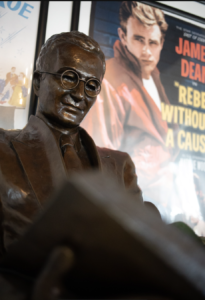
Before WeHo actually existed as a city, Anna Strasberg, David’s mother, opened the institute’s Marilyn Monroe Theatre for early organizing meetings that led to the city’s incorporation in 1984. As the city celebrates its 40th anniversary this year, David reflects on the symbiotic relationship between the Institute and the creative community that surrounds it.
“West Hollywood is a city of diverse voices,” he said. “The method is a friend to people who have something to say.”
Despite its ideal location, David acknowledges the challenges posed by the institute’s surroundings. The neighborhood’s struggles with homelessness and drug use have created a dynamic that is difficult to ignore. “There’s something going on here that is not serving the people who are on the street, and it’s not serving the people around it,” he said.
He believes that fostering stronger partnerships with the city could not only address these pressing social issues but also provide opportunities for artistic expression and growth.
“I’d love for them to use us,” he said. “We are literally an educational resource. So can we do performances? Of course, we can do performances. But I’m not sure they know we teach. And I think there are so many creative folks here who could benefit—not from what they think method acting is, because they might be painters, right? The idea of helping someone get more in their own skin—I don’t think the city has necessarily hit that note.”
He would also love the opportunity to work with the city as it prepares to open a brand new playhouse, and he laments that the city hasn’t tried to initiate a conversation.
“It’s supposed to be like, “Oh my God, we have this theater school right down the block. Maybe we should talk to them about how they could help us enrich that space,'” he said.
FATHER FIGURE
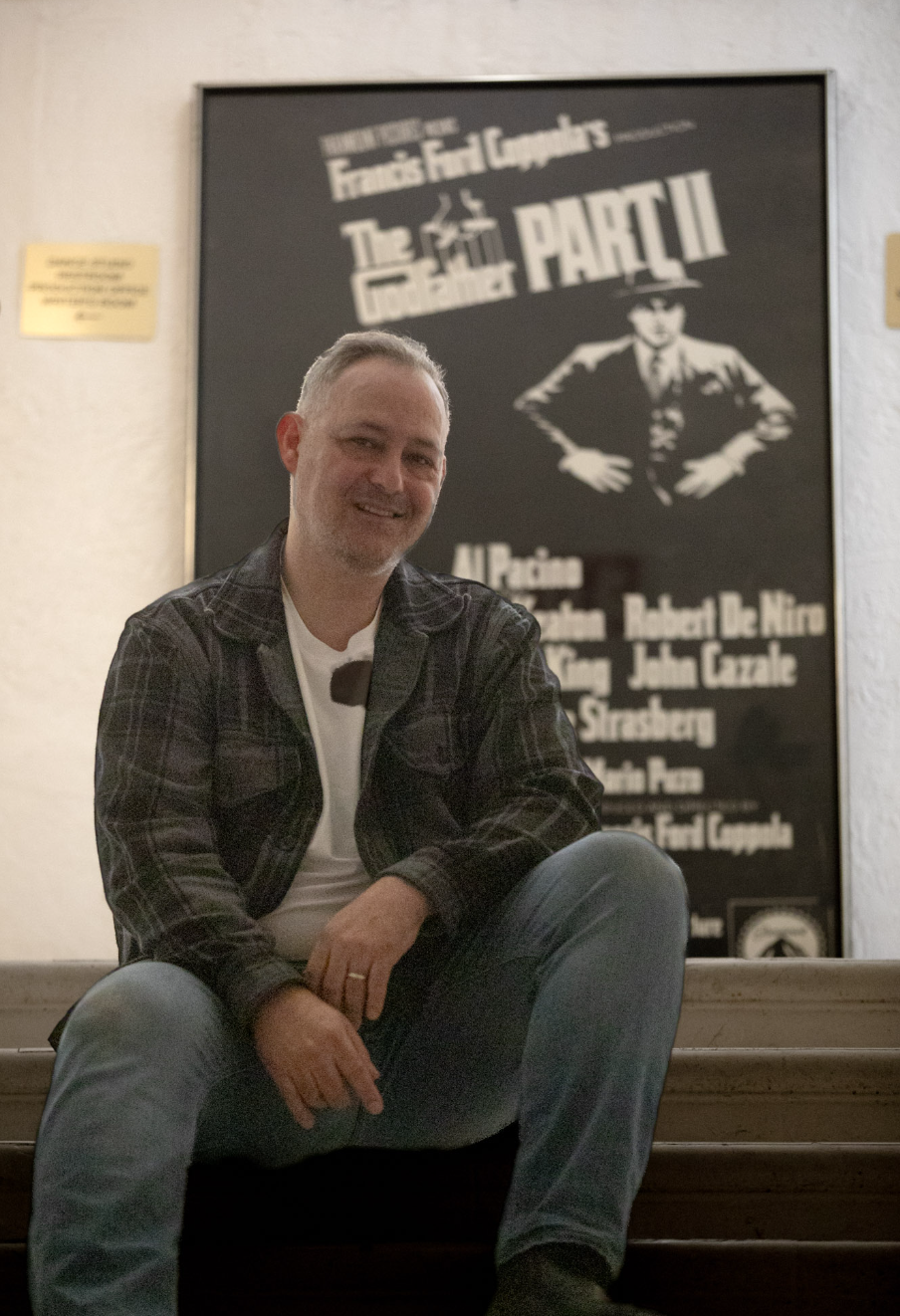
With the passing of his mother in 2023, David is for the first time alone in charting a course for his family’s legacy.
As The Godfather’s legacy looms large, David reflected on his father’s understated nature, his philosophies on acting and the enduring relevance of the iconic film series.
David noted that his father often downplayed his achievements unless they were tied directly to his craft. Longevity and depth of skill were central concerns for Lee Strasberg, who frequently critiqued the fast-paced nature of the American film industry. According to David, his father believed that the rapid turnover of projects in the U.S. stifled actors’ opportunities to fully master their craft. He contrasted this with European theater traditions, where actors could spend years refining a single role, allowing for deeper exploration and growth.
David explained that before the advent of method acting, training largely focused on mechanical techniques such as gesture and voice modulation. Lee Strasberg, inspired by Stanislavsky and other pioneers, introduced a more nuanced approach that allowed actors to connect deeply with their roles. This innovation helped create a craft that could be passed down and refined across generations, shaping the modern art of acting.
David says the enduring appeal of the The Godfather II and other films in the series lies in the universal themes of family, loyalty and conflict. He also acknowledged the film’s limitations, particularly in its portrayal of women. He noted that the female characters adhered to traditional archetypes of the era, such as the mother, the whore, or the crone. While this was an intentional choice that reflected the period, David suggested that any modern reinterpretation of the story would likely include more nuanced roles for women.
He touched on The Godfather’s groundbreaking legacy in cinema, including the revolutionary decision to title its sequel with a “II.” David pointed out that at the time, studios resisted the idea, fearing it would suggest the sequel lacked originality. However, The Godfather Part II became one of the most successful sequels in film history, proving the model’s viability for future franchises.
“I think people in 50 years are still gonna watch The Godfather because it’s not about crimes, it’s not about killing people, and it’s not even about mafia bosses,” he said. “It’s about family. And in 50 years, people are still gonna be wrestling with family and expectations and failing those expectations. Whether you’re the parent having expectations or the kid having them—I think that will endure. And I think that’s a universal thing that—that I am proud my dad was part of.”
